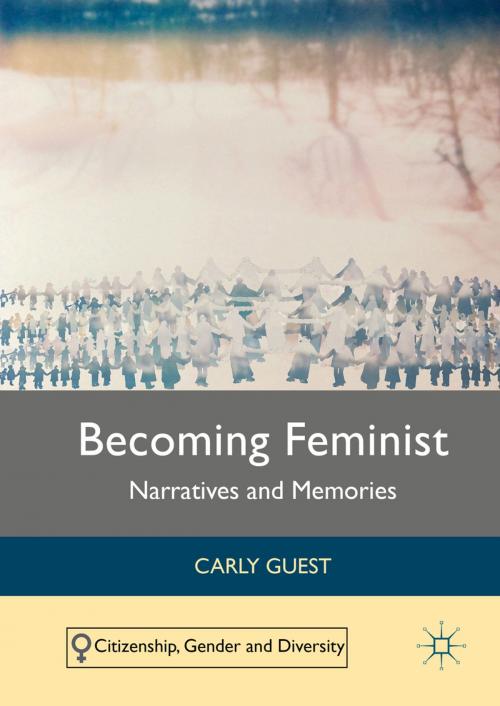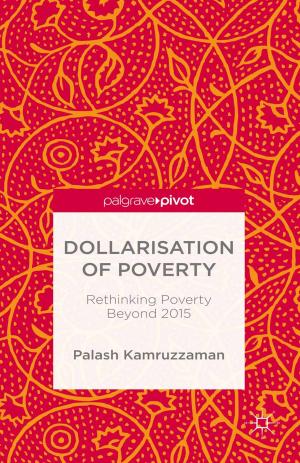Becoming Feminist
Narratives and Memories
Nonfiction, Social & Cultural Studies, Social Science, Gender Studies, Feminism & Feminist Theory| Author: | Carly Guest | ISBN: | 9781137531810 |
| Publisher: | Palgrave Macmillan UK | Publication: | August 15, 2016 |
| Imprint: | Palgrave Macmillan | Language: | English |
| Author: | Carly Guest |
| ISBN: | 9781137531810 |
| Publisher: | Palgrave Macmillan UK |
| Publication: | August 15, 2016 |
| Imprint: | Palgrave Macmillan |
| Language: | English |
This book offers a novel, detailed and sensitive exploration of women's engagement with feminism. Centred on the themes of generations, hope, emotions and belonging, each chapter attends to the specific and particular practices of 'becoming feminist' via a series of accessible case studies. Adopting a theoretical and methodological focus on narrative and memory, this original and absorbing work analyses the various and complex ways in which feminism and its histories are received and processed by some feminist women today. Its focus on the specificity of experience disrupts overarching narratives of feminism and its histories, whilst acknowledging that such narratives are often used to sustain, defend and maintain a secure feminist identity. In doing so, it develops a growing body of work concerned with the relationships women forge to feminism’s pasts, presents and futures, with a distinct focus on the stories feminist women tell about their lives. It will appeal to students and scholars of sociology, psychosocial studies, gender studies, women's studies and cultural studies.
This book offers a novel, detailed and sensitive exploration of women's engagement with feminism. Centred on the themes of generations, hope, emotions and belonging, each chapter attends to the specific and particular practices of 'becoming feminist' via a series of accessible case studies. Adopting a theoretical and methodological focus on narrative and memory, this original and absorbing work analyses the various and complex ways in which feminism and its histories are received and processed by some feminist women today. Its focus on the specificity of experience disrupts overarching narratives of feminism and its histories, whilst acknowledging that such narratives are often used to sustain, defend and maintain a secure feminist identity. In doing so, it develops a growing body of work concerned with the relationships women forge to feminism’s pasts, presents and futures, with a distinct focus on the stories feminist women tell about their lives. It will appeal to students and scholars of sociology, psychosocial studies, gender studies, women's studies and cultural studies.















